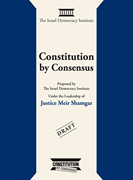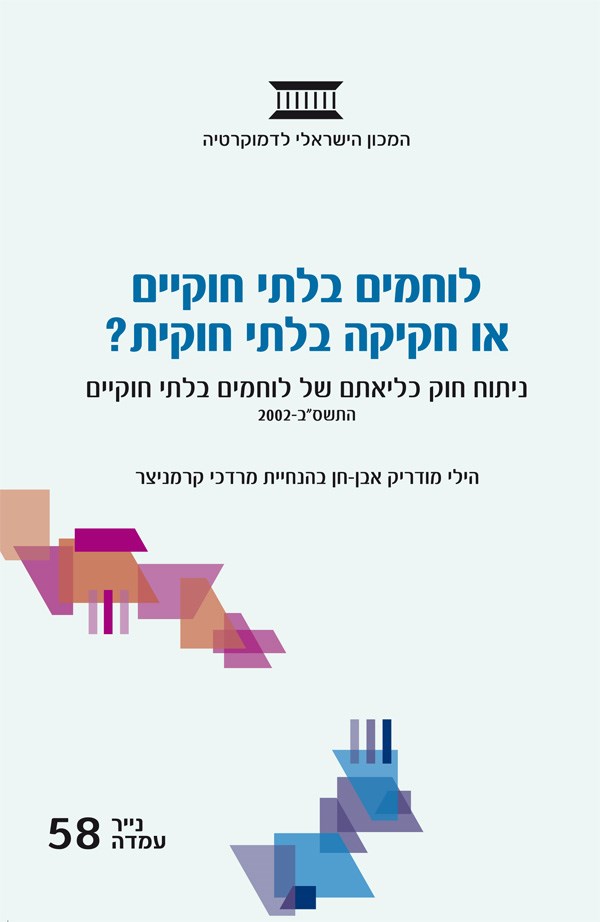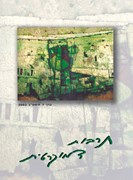

Publications Regarding judicial review
Articles

Three Supreme Court Justices on Israel's Judicial Overhaul
Three former supreme court justices from Israel, the United States, and Canada—Dorit Beinisch (Israel), Stephen Breyer (US), and Rosalie Abella (Canada)— assembled at the 92nd Street Y in New York for a timely conversation on the complex legal and political drama unfolding in Israel.

Statement by the Israel Democracy Institute on the Prime Minister’s Decision to Suspend the Judicial Overhaul
The temporary suspension of the judicial overhaul provides an opportunity for the Prime Minister, as well as the leaders of the coalition and the opposition, to turn this crisis into a historic constitutional opportunity.

No Other Democracy in the World
"“In Ireland we have a judicial appointment commission which is mixed, but there are no politicians on the commission and there never has been.” Alan Shatter, Former Minister for Justice, Equality and Defense (Ireland)

There’s no ‘compromise’ in the coalition’s play for unlimited power
Written By: Prof. Suzie Navot
Slowing the overhaul is a sham. It’s still a hostile takeover of the Supreme Court and its ability to restrain the coalition

Statement by the Israel Democracy Institute on President Herzog’s Proposal
The Israel Democracy Institute congratulates President Isaac Herzog on his extraordinary efforts. While the President’s plan contains some problematic elements, if it were to be adopted in its entirety as a package, we would support it because it safeguards our democracy and bolsters key elements of our constitutional foundations.

The Levin-Rothman plan 101 (yes, this will be on the test)
Written By: Dr. Dana Blander
Some actual facts for college and university students whose teachers are under attack for teaching actual facts
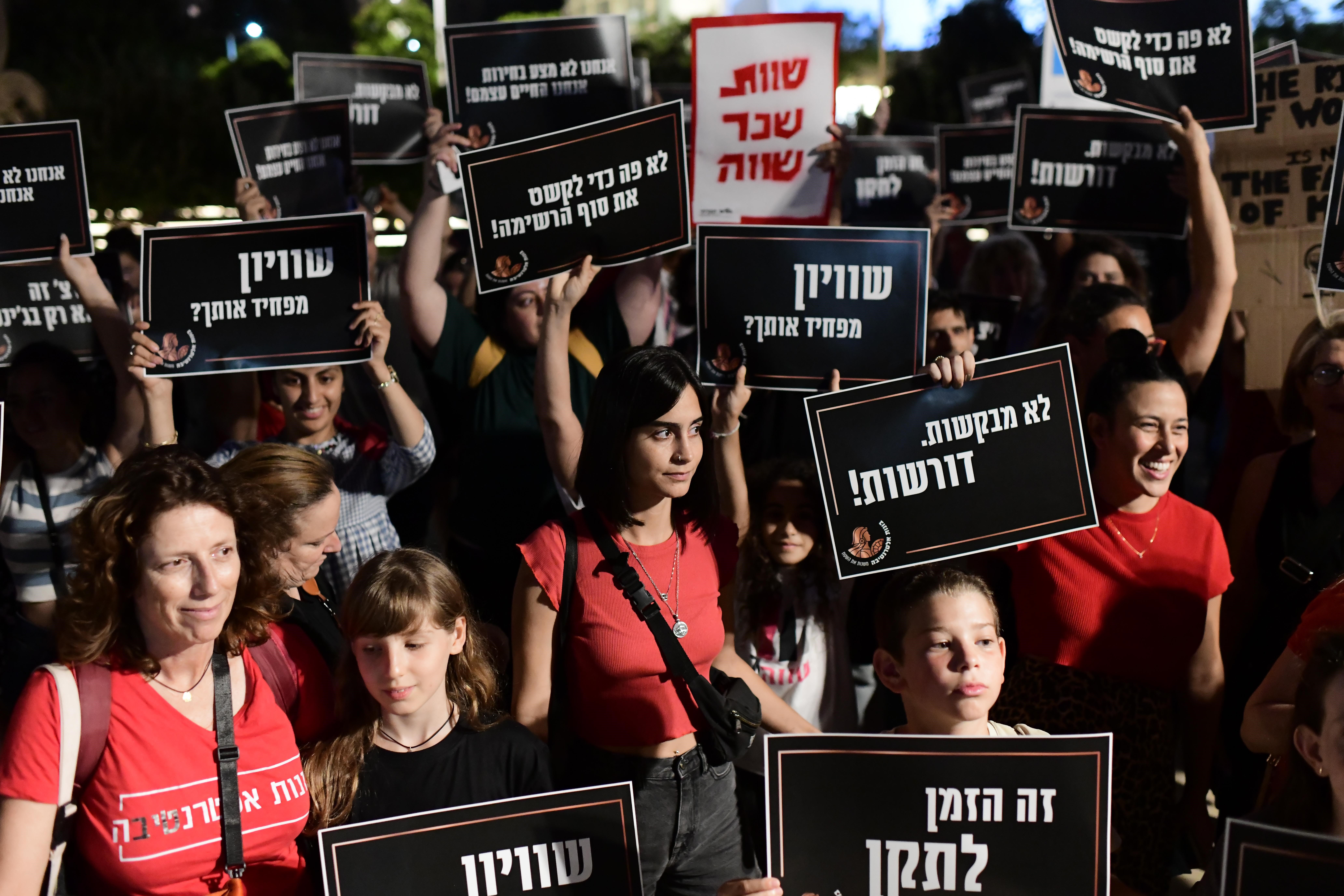
The Ramifications of the Judicial Reform for the Status of Women in Israel
Written By: Adv. Anat Thon Ashkenazy
A professional opinion by the Israel Democracy Institute presented in advance of the session of the Knesset Committee on the Status of Women and Gender Equality on February 20, 2023

How Often Does the Supreme Court Invalidate Legislation?
Written By: Prof. Yuval Shany, Dr. Guy Lurie
In recent years, there have been attempts to enact the “override clause” in Israel, a legal provision that would enable the Knesset to override the Supreme Court’s rulings in cases in which it strikes down legislation. This week the Constitution, Law and Justice Committee is discussing a draft of such a law.

Only a Minority of Israelis Support the Proposed Judicial Overhaul
Written By: Prof. Tamar Hermann, Dr. Or Anabi
66% of Israelis: Supreme Court should have power to strike down laws that are incompatible with Israel’s Basic Laws | On Judicial Selection Committee: 63% Support Current Principle Requiring Agreement between Politicians and Justices.
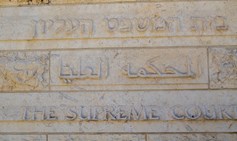
Supreme Court Should Retain Power – Survey
Written By: Prof. Tamar Hermann, Dr. Or Anabi
The majority of Israelis think that the Supreme Court should retain its ability to strike down legislation that contravenes the country’s Basic Laws – and only 16% said that the Judicial Selection Committee that appoints justices should be politicized by increasing the number of elected officials serving on it.

61 Cats Guarding the Cream
Written By: Dr. Amir Fuchs
The optimistic hope that the majority will not take advantage of its power to perpetuate its rule is akin to leaving the cream to be guarded by 61 cats. The temptation is just too strong.

Terms of Office of Supreme Court Justices
Written By: Dr. Guy Lurie
In Israel, judges sit on the bench until they reach the age of 70, while advocates for changing the current method of their appointment often support the idea of limiting Supreme Court judges’ tenure.

2021 Israeli Democracy Index: Israel’s Legal System
Written By: Prof. Tamar Hermann, Dr. Or Anabi, Yaron Kaplan, Inna Orly Sapozhnikova
A small majority agree that the Supreme Court should have the power to overturn laws passed by the Knesset when democratic principles are contradicted, while a high rate of the Israeli public, primarily from the right-wing and ultra-Orthodox, believe that the selection of judges in Israel is based on political considerations.
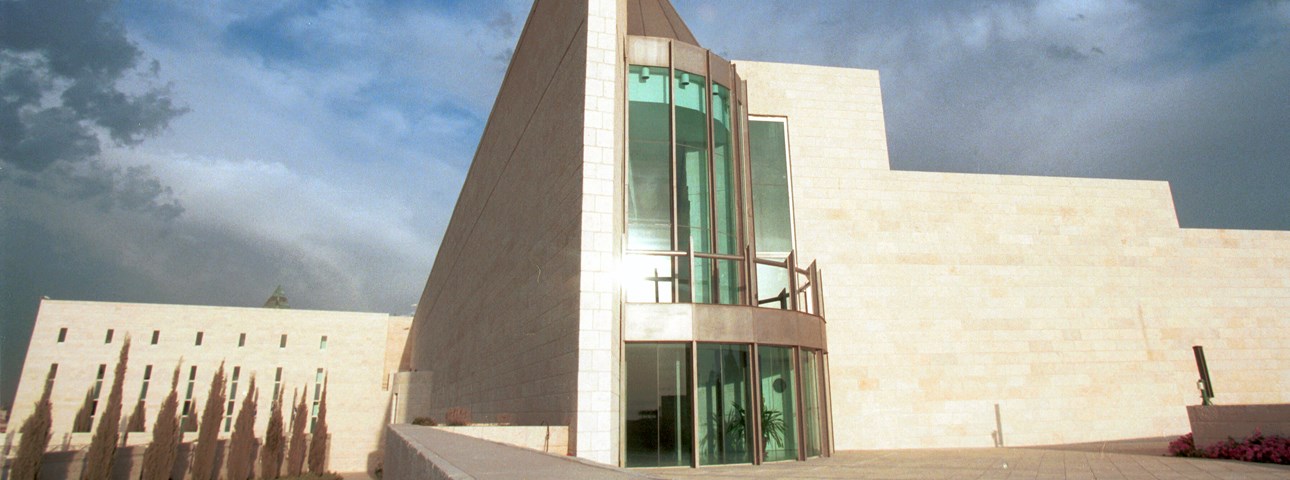
How Revolutionary Was Israel’s ‘Constitutional Revolution’?
Written By: Prof. Amichai Cohen
Prof. Amichai Cohen discusses his new book The Constitutional Revolution and Counter-Revolution, and explains the changing role of the High Court of Justice in maintaining the checks and balances of Israeli democracy.
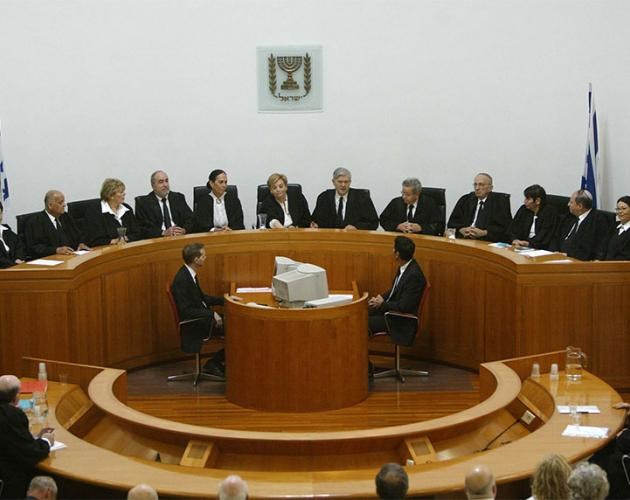
How Many Laws Were Struck Down by the Supreme Court in Israel?
Written By: Dr. Amir Fuchs
With calls to enact an 'override clause' to push back against judicial review back in the news, Dr. Amir Fuchs analyzed the twenty laws the Court has overturned since Israel's establishment
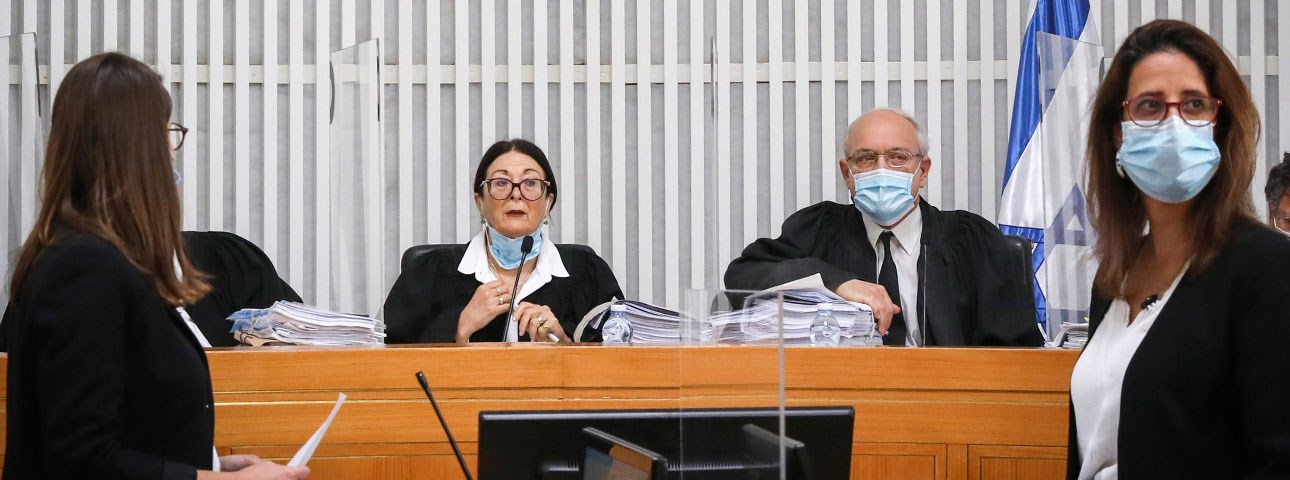
Moment of Truth for Judicial Restraint
Written By: Prof. Yedidia Z. Stern
Many Israelis attribute a left-wing bias to the Supreme Court and accuse it of extreme activism, but the hearings that were broadcast live highlight the vast gulf between the Court's image and the reality
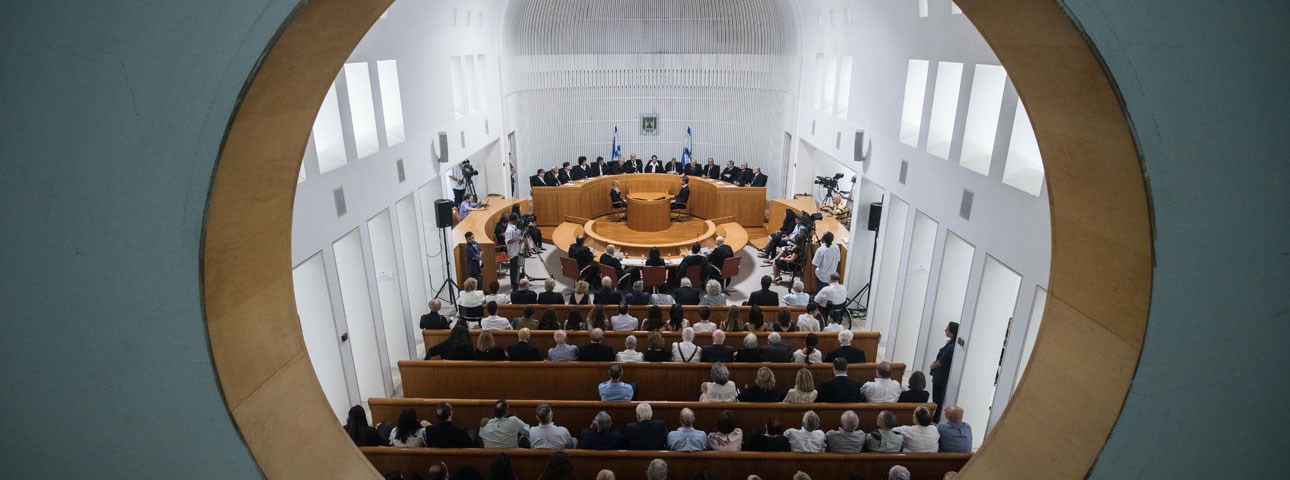
Assault on Israel's Judicial System: The Angel of History is Watching Us
Written By: Prof. Yedidia Z. Stern
Justice Minister Amir Ohana,has launched a fierce attack against the State Attorney’s Office. The Prime Minister who appointed him would be wise to remember that the angel of history is peeking over his shoulder.

The Knesset and the Court: Is This Israel’s Override Election?
Written By: Yohanan Plesner
"This election will be less about which candidate ends up as prime minister, but rather the real possibility of radical judicial reforms that might soon pass in the Knesset and which would limit the Supreme Court’s ability to perform crucial oversight over the political system."
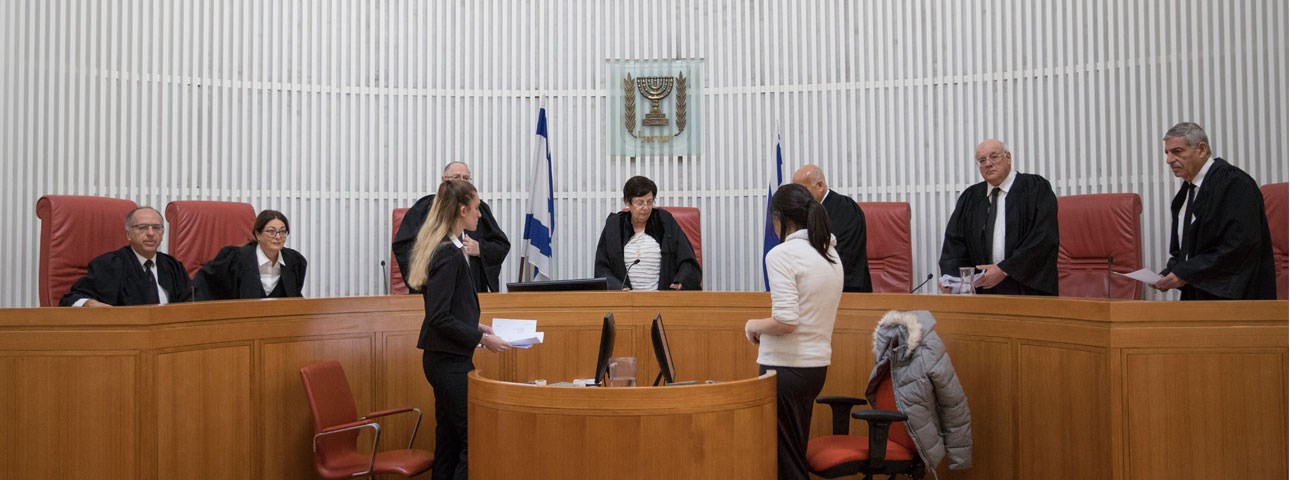
Whatever Happened to the Override Clause?
Written By: Prof. Yuval Shany
It turns out that voters actually want robust judicial oversight - which explains why the Override Clause and placing limitations on judicial review have not been prominant in the election campaign
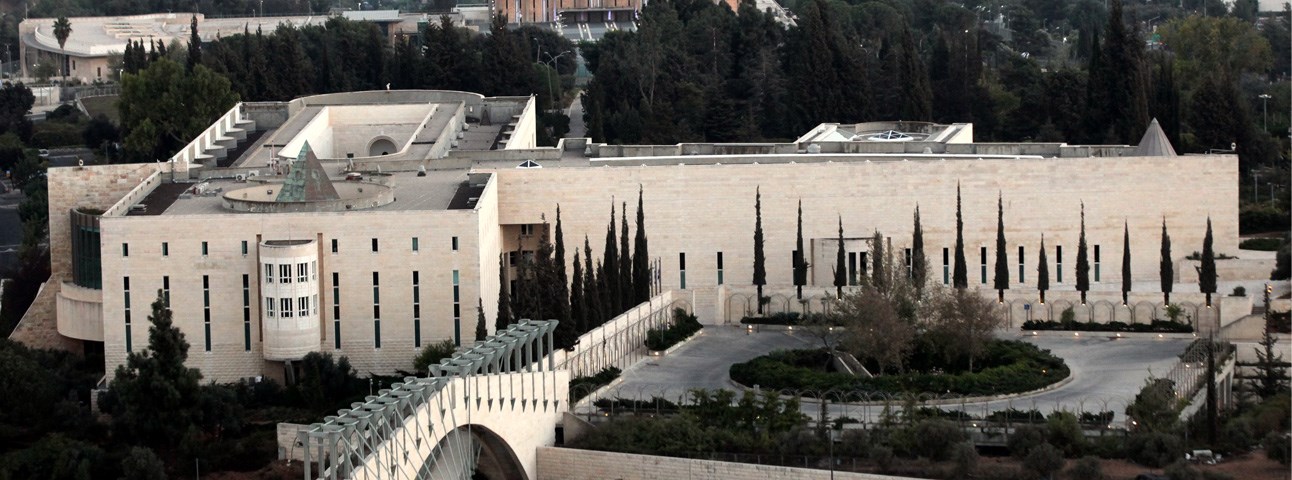
The Supreme Court Doesn't "Tie Hands"
Written By: Dr. Amir Fuchs
On claims that the High Court ties the security establishment's hands, Dr. Amir Fuchs says "the truth is that when authoritative figures from the defense establishment appear before the court to support some important security requirement, the court almost always adopts their argument".

Attempts to Curtail the Supreme Court
Written By: Yohanan Plesner
The Israel Democracy Institute offers a look inside efforts to reduce politicization of Israel's Supreme Court.

No Female Pilots in IDF? – Get Over it!
New IDI Campaign to Warn Against Attempts to Decimate Supreme Court and Grant Unlimited Power to Politicians
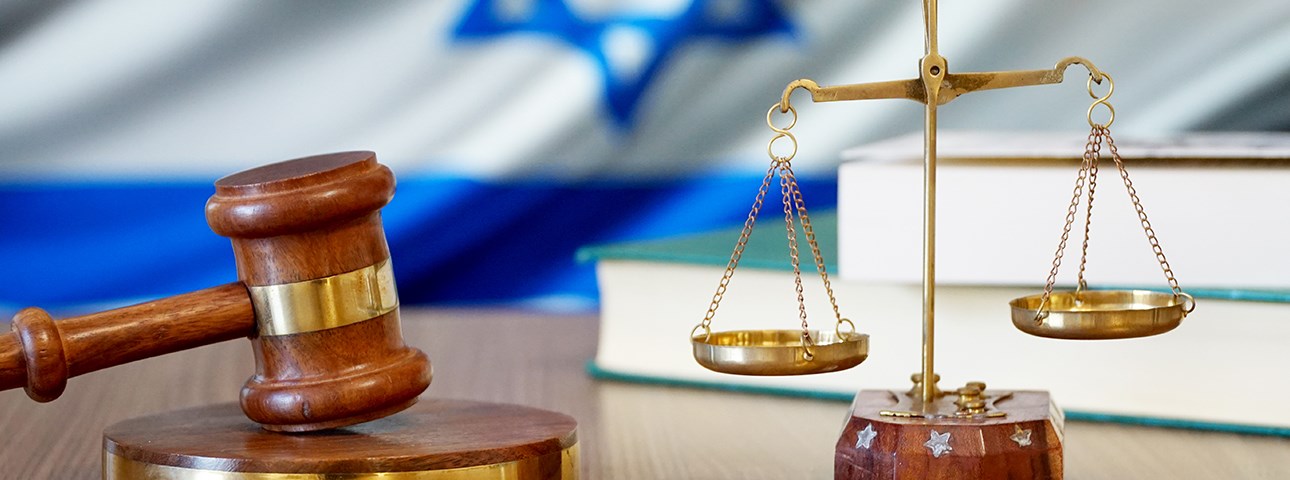
Judicial Review Under Review
Written By: Dr. Amir Fuchs
Israel’s judiciary is under assault, according to some, or experiencing a necessary corrective to rampant judicial activism, according to others. Dr. Amir Fuchs, legal expert and the head of the Defending Democratic Values project at the Israel Democracy Institute, walks through the Knesset’s attempt to change the judiciary and the balance of powers in Israel, what’s behind it, and what it means for the country.

Supreme Court Decision of Combatants for Peace v. Minister of Defense
Written By: Dr. Idit Shafran Gittleman, Tamar Hostovsky Brandes
A controversial decision delivered by the Supreme Court on May 2 could be an important test case for its ability to withstand political attacks, which call to curb the court’s authority and power
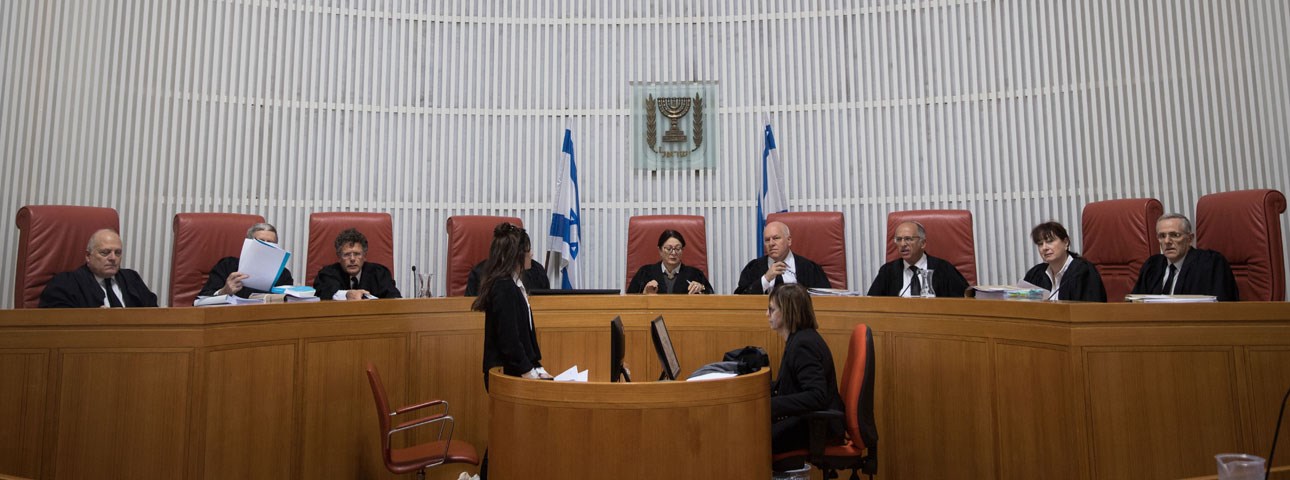
A Needle on the Israeli Compass
Written By: Prof. Yedidia Z. Stern
The conservatives who think the court is moved by a malicious intent to stamp out politics are mistaken. Our High Court of Justice is squeaky clean, and of the highest possible caliber

The Return of the Override Clause? A Dangerous and Unnecessary Step
Written By: Prof. Yuval Shany
Laws define the legal rules of our democracy and ensure the stability of the political system while guaranteeing individual rights and general public interest - enactment of the Override Clause would seriously undermine this balance.

The Constitutional Tug of War in the Outgoing Coalition
Written By: Dr. Amir Fuchs
The 20th Knesset was the most injurious of all with regard to democratic values, freedom of expression, gatekeeping and, above all, minority rights. In the next government we can only hope that someone will champion liberal center-right values to continue to protect our democracy.

The Attack on Legal Oversight Threatens Us All
Written By: Prof. Yedidia Z. Stern
Government-sponsored legislation proposing to change how ministry legal advisors are appointed has stirred up quite a storm. The idea should worry all of us, not only jurists.

Override: A Serious Blow to Democracy
Written By: Dr. Amir Fuchs
Dr. Amir Fuchs argues that an override of Supreme Court decisions should be stoutly resisted by democrats from all parts of the political spectrum.
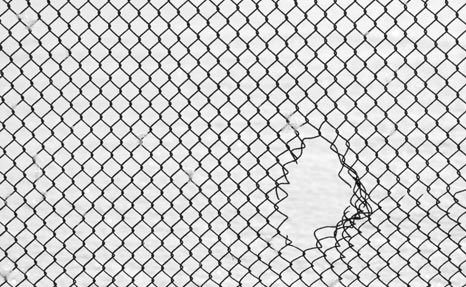
Overriding the Supreme Court: A Breach in the Wall of Democracy
Written By: Dr. Amir Fuchs
Dr. Amir Fuchs discusses the proposal to add an override clause to Israel's Basic Law: Human Dignity and Freedom that would enable the Knesset to bypass the High Court and deal a a severe blow to the main safeguard of human rights and minorities in Israel.
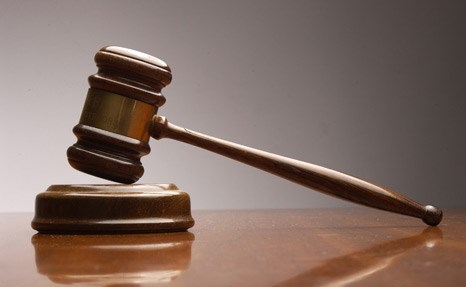
What Can We Learn about Israeli Policy Making from the Supreme Court's Ruling on the Anti-Infiltration Law?
Written By: Dr. Talya Steiner
Attorney Talya Steiner warns that a Supreme Court's judgment that struck down an amendment of Israel's anti-infiltration law as unconstitutional points to significant flaws in Israel's process of policy-making.

Basic Law: Legislation – A Lethal Blow to the Supreme Court
Written By: Prof. Mordechai Kremnitzer, Dr. Amir Fuchs
IDI Vice President Prof. Mordechai Kremnitzer and Adv. Amir Fuchs analyze the proposed legislation that would allow the Knesset to reinstate laws that have been struck down by the Israeli High Court and warn of a threat to judicial review and civil liberties.

Decade in Review: Human Rights in Israel
Written By: Prof. Mordechai Kremnitzer
IDI Vice President Professor Mordechai Kremnitzer weighs in on the challenges faced by Israel's High Court of Justice, in an article that was published at the end of the third millennium as part of a collaboration between IDI and Walla!, a popular Israeli website.

Decade in Review: A Rocky Road for Israeli Courts
Written By: Prof. Yedidia Z. Stern
IDI Vice President Prof. Yedidia Stern dissects the tenuous road traveled by the Israeli court system, in an article that was published at the end of the third millennium as part of a collaboration between IDI and Walla!, a popular Israeli website.

The “People’s Army”?
Written By: Dr. Asaf Malchi
This article presents the main milestones in the recurring attempts to put a satisfactory arrangement for the deferment of military service for yeshiva students in place. In doing so, it surfaces the changes that have occurred over time in the constitutional, legal, and public responses and attitudes on this issue.


